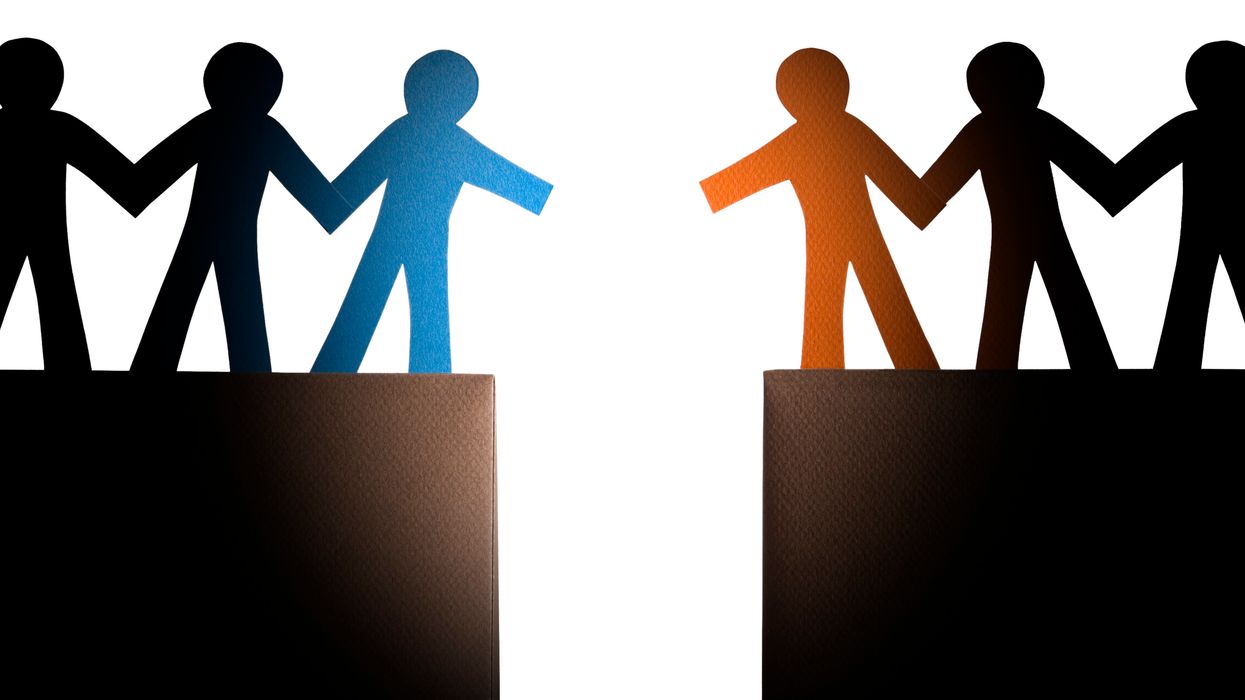Becvar is co-publisher of The Fulcrum and executive director of the Bridge Alliance Education Fund.
Since last summer, the Bridge Alliance Education Fund and Resolutionaries have joined forces to champion the Building Civic Bridges Act, and the public’ssupport has been invaluable. We're excited to announce that the BCBA is slated for reintroduction in Congress on March 15 – an exciting next step in our collective journey toward fostering a more unified and healthy nation.
The urgency of now
The State of the Union address was the most recent example highlighting the stark reality of toxic polarization manifesting as hyper-polarization. It's against this backdrop that the BCBA serves as a hopeful tool designed to confront these issues directly. Spearheaded by a bipartisan coalition of lawmakers, the BCBA embodies our nation's collective acknowledgment that our nation's strength lies in unity, not division.
Education and Workforce Committee's Member Day - Rep. Kilmer voicing support for the BCBA
What is the Building Civic Bridges Act?
At its core, the BCBA represents a bold step forward in our nation's quest for healing. By proposing the creation of an Office of Civic Bridgebuilding within AmeriCorps, this groundbreaking legislation seeks to:
- Empower communities: Through a dedicated grant program, the BCBA aims to bolster civic bridge-building efforts nationwide, supporting a diverse array of organizations committed to mending the fabric of our society.
- Train for transformation: By equipping AmeriCorps members with the tools for civic bridge-building, we're nurturing a new generation of change-makers poised to lead our communities toward greater understanding and cooperation.
- Encourage research for progress: The BCBA recognizes the importance of informed action, advocating for research into civic engagement and social cohesion to illuminate our path forward.
- Partner for activation: By fostering a national dialogue on civic bridge-building, the BCBA positions itself as a pivotal force in the movement toward a more united America, offering resources and support to those working on the front lines of this vital cause.
Why it matters
The BCBA transcends legislation; it is a declaration of our unwavering dedication to the ideals of democracy. It acknowledges the need for dialogue, empathy and understanding across all divides. In line with the recommendations of the bipartisan Commission on the Practice of Democratic Citizenship, the BCBA is a call for expanding civic bridge-building as a means to address the toxic polarization that threatens our social cohesion. The commission’s Our Common Purpose report pointed out that Congress already provides funding to strengthen democracies abroad through the National Endowment for Democracy. Why not fund democracy at home?
As Sen. Chris Coons (D-Del.) insightfully remarked in September 2023, "Democracy is a verb. It has to be an active verb. And it only remains a democracy if we do it together." This sentiment captures the spirit of the BCBA and mirrors our core mission at the Bridge Alliance Education Fund.
Join us in advocacy
The introduction of the BCBA is a significant milestone, but our work is far from over. We invite you to join us in this critical phase of advocacy. Reach out to your representatives, share the BCBA's message across your social media platforms or engage in the public discourse by highlighting the significance of civic bridge-building in your community's media outlets. Each action brings us closer to ensuring that democracy remains a vibrant, active verb that unites us all.




















